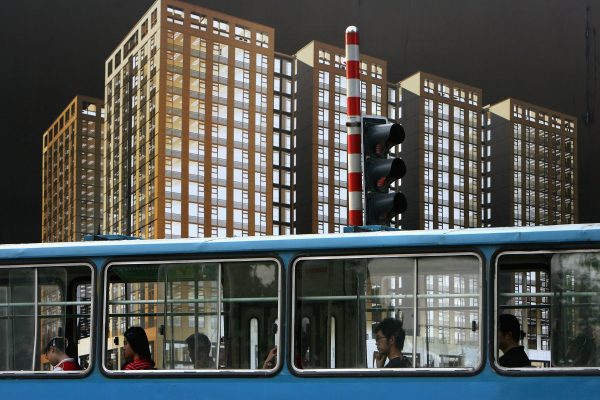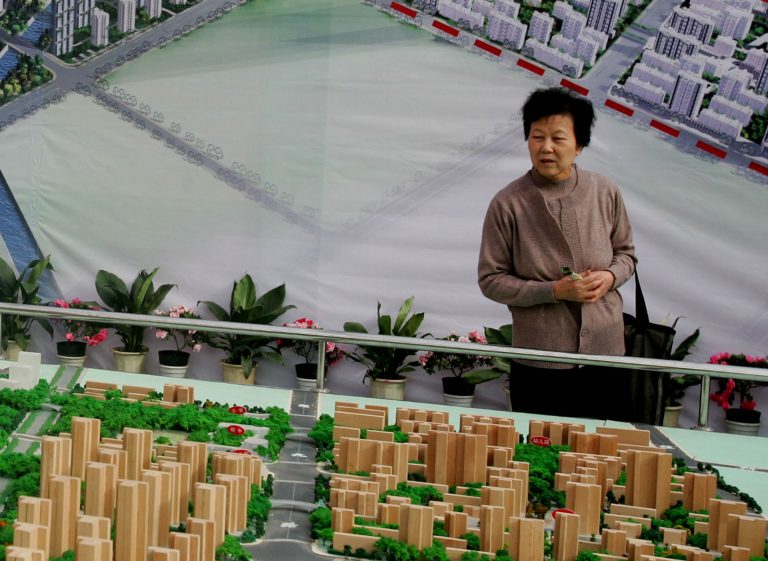Yang Huiyan, known as the richest woman in Asia, has lost more than half of her $24 billion fortune as China’s worsening real estate crisis pushes big developers further into debt.
Yang, who hails from Guangdong Province in southern China, inherited her vast wealth from her father Yang Guoqiang, who founded Country Garden in 1992 — China’s largest property developer firm. According to Bloomberg Billionaires’ Index, Yang’s fortune shrunk by more than 52 percent to $11.3 billion, down from $23.7 billion a year ago.
On June 27, Country Garden’s stock plunged by 15 percent as the country’s property market faces dwindling buyer demand stemming from soaring home prices. A recent debt-defaulting crisis has also engulfed some of China’s largest developers — with embattled real estate giant Evergrande Group at the center of it.
MORE ON CHINA’S FINANCIAL CRISIS:
- Behind the Timing of Didi Global’s $1.2-billion Fine
- 3 Evergrande Real Estate Executives Asked to Resign Over Unstable Loans
- With Both Small and Large Banks in Trouble, Will China’s Debt Crisis Blow Up?
- Chinese Regulators Slam Ride-Sharing App Didi Global with $1.2 Billion Fine
- Residents in China’s Henan Province Lose Access to Bank Accounts, Face Off With Police
Yang became Asia’s richest woman two years after the developer went public on the Hong Kong Stock Exchange in 2007. But now, she is barely holding on to that title — with chemical fibers tycoon Fan Hongwei rapidly closing in with a net worth of $11.2 billion as of July 26.
And while Country Garden has managed to remain relatively unscathed by industry disruptions, it angered investors when it announced on July 26 that it was planning to raise more than $343 million through a share sale in order to pay off its debts.
Success
You are now signed up for our newsletter
Success
Check your email to complete sign up
Proceeds from the sale would be used for “refinancing existing offshore indebtedness, general working capital and future development purposes,” the real estate firm said in a filing to the Hong Kong Stock Exchange.
On the edge of bankruptcy
China’s real estate sector has been a key driver of the country’s rapid growth, with home prices rising steadily for decades since the mid-1980s, and offering seemingly lucrative purchasing options that would guarantee income growth for its “new middle class.” China’s property market accounts for an estimated 18 to 30 percent of its overall economy, according to Goldman Sachs analysts.

At the same time, the Chinese government’s clampdown on its real estate sector has also resulted in long-term repercussions to its already struggling economy as investors saw themselves out millions of dollars resulting from the Evergande crisis. In a desperate bid to contain some of the losses, developers have tried to drive up housing prices — resulting in many buyers being unable to afford new property or opting to stop buying altogether.
In addition, regulatory crackdowns targeting developers’ high reliance on bank loans have resulted in a massive surge in housing prices.
Major players, such as Evergrande and Sunac, have struggled to make payments, forcing the companies to renegotiate with creditors in hopes of having their debt restructured. Evergrande’s total debt and liabilities have now reached $300 billion after a $2.6 billion deal fell through last October, resulting in the enterprise defaulting on its debt in late December last year.
A faulty system
According to mainland China’s Caixin news, buyers of housing units in dozens of unfinished projects across the country have been “refusing to make mortgage payments to protest developers’ failure to meet construction schedules.” A July 14 petition from homebuyers to local authorities demanded developers resume construction and deliver projects as promised, the report said.
Under pressure, Beijing’s regulators changed their tune on July 21, vowing to assist local governments in finishing up their property projects on time. By July 25, the government was reportedly coming up with measures that would allow homeowners to “temporarily halt mortgage payments on unfinished property projects without affecting their credit scores,” according to Bloomberg.
“Homebuyers’ refusal to pay mortgages on unfinished properties across cities in China and the mass protests in Henan by bank depositors demanding their savings back and condemning government corruption are another manifestation of the huge challenges Beijing faces at present,” Diana Choyleva, chief economist at Enodo Economics — a macroeconomic consultancy in London told The Guardian.














